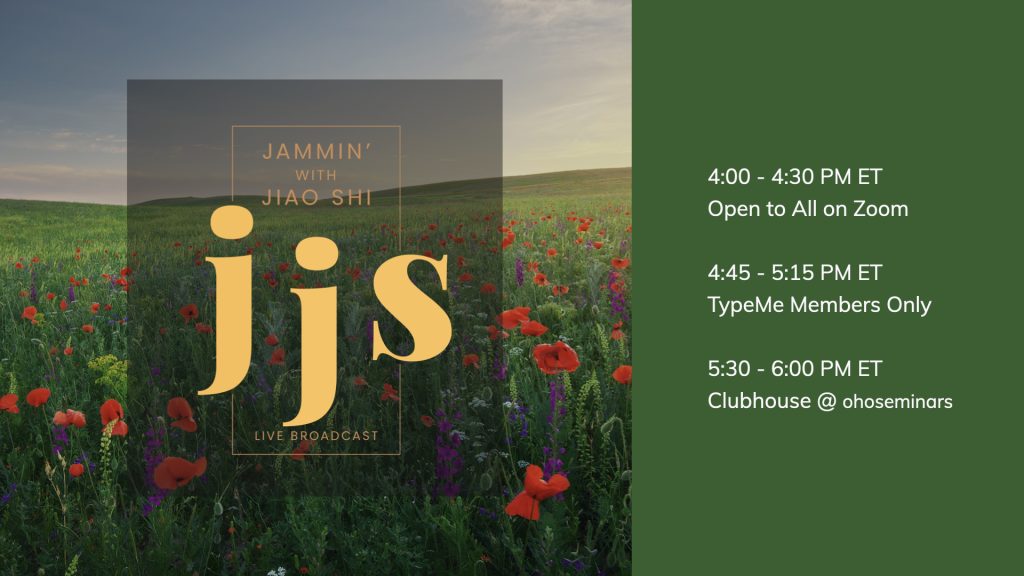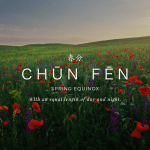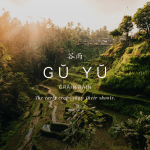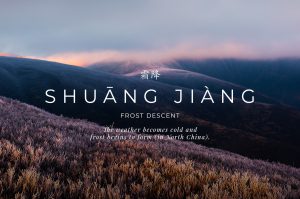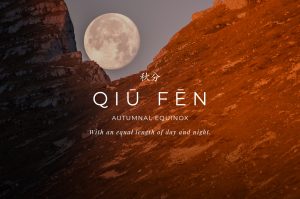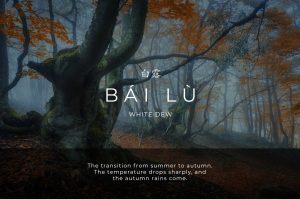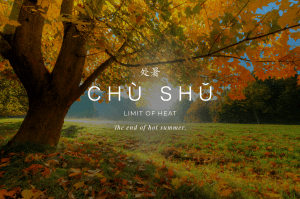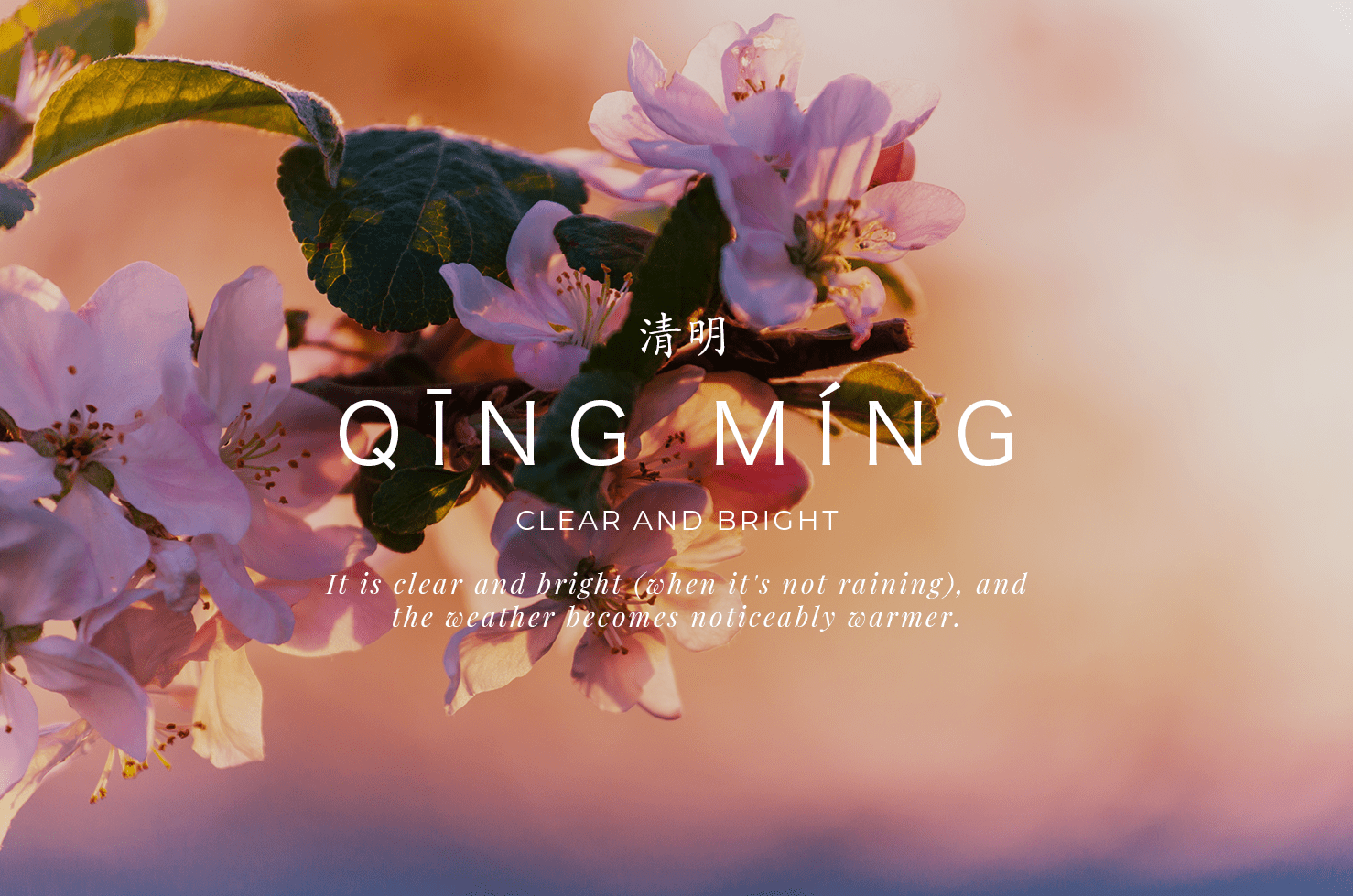
清明 Qīng Мíng: Clear and Bright
April 4th through April 18th marks the time of 清明 Qīng Míng, which translates as Clear and Bright. 清明 Qīng Мíng is the 5th solar term in the Ancient Chinese solar calendar. Also called Pure Brightness, it always begins when the Sun reaches the celestial longitude of 15° and ends when it reaches the longitude of 30°.
“The northwest wind blew at the Qingming Festival. It was dry and windy that year.” – Ancient Chinese Proverb
清明 Qīng Мíng is often called 踏青 taqing, or tread green. This implies that the weather is mostly warm and pleasant for going outside and enjoying nature as it thrives. Rapeseed flowers are now in full bloom and the sea of yellow is so bright that it is almost blinding. Lighter clothes are now a necessity and the growth energy of spring abounds.
Let’s now look at the meaning of 清明 Qīng Мíng:
清 Qīng: clear
明Мíng: bright
The 3 pentads of 清明 Qīng Мíng are:
1st pentad – 桐始華/桐始华 tung trees begin to bloom
2nd pentad – 田鼠化為鴽/田鼠化为鴽 voles transform into quails
3rd pentad – 虹始見/虹始见 rainbows begin to appear
“Don’t stop plowing and sowing in the showers of rain around the Pure Brightness Festival.” – Ancient Chinese Proverb
明前 Mingqing Tea & Kite Flying
Tea is a fundamental part of Chinese tradition and culture which tells a gradual story of refinement thousands of years long. 明前 Mingqing, also known as Qingming tea, is a type of tea which is harvested right before the solar term 清明 Qīng Мíng. This type of tea is greatly prized for its lightness, tenderness and subtle yet pleasant aromas. It is of the highest quality and considered quite expensive. 明前 Mingqian tea can be worth 100 times more than the tea harvested in the middle of May.
“On a cold night when a guest came, I served tea as wine The water was boiling when the charcoal in the bamboo stove just turned red Those new plum blossoms were in front of the window Transformed the otherwise usual moonlight.” -Chinese poet Du Lei of the Song Dynasty (960 – 1279)
One of the traditional and popular activities people enjoy during 清明 Qīng Мíng, the Clear and Bright solar term is kite flying. It is maintained that kites were invented by two philosophers Mozi and Lu Ban during the early Warring States Period (475 – 221 B.C.) in China. One of the traditional ways that kites were used in ancient China was for gathering intelligence for military forces. A plaque can be found in the History of Flight pavilion at the National Aeronautics and Space Museum in Washington D.C. that says:
“The earliest aircraft made by man were the kites and missiles of ancient China.”
The Legend of the Qingming Festival
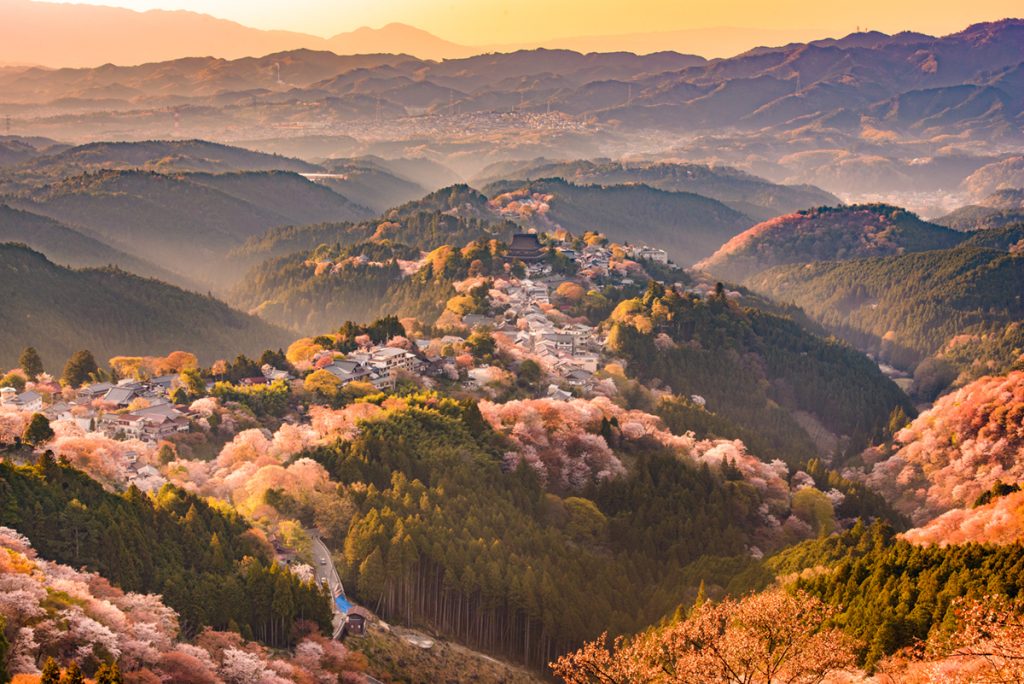
During the Spring and Autumn Period there lived a nobleman and poet by the name of 介之推 Jie Zhitui. 介之推 Jie Zhitui was loyal to his Lord, Prince Chong’er, even after the prince was exiled. On one occasion when his master was on the brink of death from starvation, 介之推 Jie Zhitui cut a piece of his own flesh to save his hungry friend. After duke Chong’er returned from exile and gained his power back, he forgot about 介之推 Jie Zhitui who as a result decided to move to the mountains and live with his aged mother in the forest.
One day the prince remembered his loyal companion and sought but failed to find him. The poet was unwilling to reveal his location or leave his hermitage. The prince then decided to set the forest on fire, expecting his friend to come out of hiding. The plan did not work and instead backfired. After the fire cooled down, bodies of the nobleman and his mother were discovered. The prince became so overwhelmed with guilt and sorrow that he decided to erect a temple in his friend’s honor. In order to commemorate 介之推 Jie Zhitui, the duke ordered that fire not be used in meal preparations. Later this day became known as the Cold Food Festival.
“A drizzling rain falls like tears on the Mourning Day The mourner’s heart is going to break on his way Where can a wine shop be found to drown his sadness A shepherd points to the apricot blossom village in the distance.” -Chinese poet Du Mu of the Tang Dynasty (618 – 907)
In 2006, Qingming festival was listed as one of the first national intangible cultural heritage events. In the meantime, farmers are hard at work, ploughing, sowing, fertilizing and nurturing.
“Sow beans and melons around the Pure Brightness Festival.”
– Chinese Proverb
May you continue to balance and harmonize yourself as we transition into 清明 Qīng Мíng. Stay active and maybe explore some kite flying!
“This spring morning in bed I’m lying, Not to awake till the birds are crying. After one night of wind and showers, How many are the fallen flowers?”
-Chinese poet Meng Haoran of the Tang Dynasty (618-907)
Don’t forget to check out the newest videos on our YouTube Channel
Jammin’ With Jiao Shi
